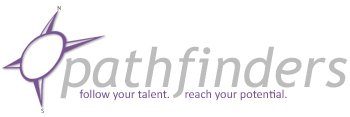How To Find Meaningful Work: Part 2
Part 2: How to Design a Career Path
Designing a career path is the next step. If you haven’t seen part 1, How to Find Meaningful Work, read that first and then come back here.
With no future and nothing waiting for you, then nothing will happen unless you “make it up.” We custom design our bathrooms and kitchens, we can do it with our careers too. Even if you do “find” a pre-made career, it won’t be yours. I meet a lot of doctors and lawyers that fell into a pre-made life, they don’t like what they do at all. Their life occurs as a J.O.B., not a quest or a career adventure.
What Am I Good At?
To get started with your career design, consider this question:
1. What activities am I naturally talented for?
Think in terms of verbs and actions, not career titles. For instance, orthopedic surgeons “diagnose and repair complex spatial systems.” Civil engineers perform the same function, so do car mechanics and firefighters.
The natural talent question is bite size and much easier to answer than the other big hairy question brought up earlier. Your innate abilities are a major component to build into your future. Once you understand your innate talents, you’ll be able to quickly narrow down the vast career world to a very small set of career fields that suit your abilities. Knowing what small subset of career fields fit your talent profile is the best clue any human being can use to choose what they are “meant” for.
What Am I Into?
Deciding what you’re “into” is another major component to add to your career building blocks. This is where meaning comes into play. Consider another important question:
2. What subject matter fascinates me enough to constantly learn and apply?
Once you figure out the fields you want to continually learn and apply on a real problem, you’ll have motivation to use your natural talents. It’s not enough to be good at what you do. If you don’t care about what you’re doing, having all the talent in the world won’t get you jumping out of bed in the morning to go to work.
Specs
3. How do my career specs work together?
This methodology to making a career choice is based on a simple principle; it’s easier to answer smaller, more specific questions and think about your career in terms of building blocks or “specs.” Above, I posed that you actually have two important questions to research in choosing your career direction. The first is to figure out what your inborn talents are, and the second is to decide what subject area would give you meaning to engage your abilities, year after year. There are many more questions to ask yourself, but this is a good foundation to start your career change effort.
Albert Einstein recognized early that he was naturally talented at visualizing complex spatial (3D) problems in his mind’s eye. He also had exceptionally high diagnostic reasoning, a talent for making connections between ideas that are not obviously related (this aptitude is the key ability for excelling in the sciences). He could have used these same talents to be an architect or engineer. However, what gave him joy was playing with the subject matter of quantuam physics. He disagreed with the notion that he was a born genius, he credited his accomplishments to a lifelong commitment to using his innate talents in service of an intriguing purpose—he gave himself a personally meaningful reason to apply his natural abilities.
“A person starts to live when he can live outside of himself.” ~ Einstein
Design It
The Final Trick on How to Design Your Career Path
The future you design is really just a landmark, a custom-made blueprint to guide your day-to-day choices, risks and actions. How you live your life “now” is the most important point. Choosing a direction for your life is kind of trick to get things moving in the right career direction. Design your career path, then forget about it and enjoy the journey. “Be” your career. How will you know your going the right way? If you’re good at what you’re doing, you’ll know. Trust your instincts; if your work starts to feel more like play, you’ve found your way.
The long-term payoff to designing and moving toward your future is counterintuitive to how we’re taught to achieve well-being in life. Most of us are too busy chasing happiness through temporal means. Rather, the trick is to commit your natural talents to something that matters to you, and to live outside of yourself—on purpose. Nicholas Lore, best selling career author said it well . . .
“When life is about caring for the orchard, rather than picking the apples, you get more apples to eat. It is quite paradoxical, but as soon as you give up trying to make yourself happy, you are.“
Read on: How to design meaningful work
For expert help with how to design and choose your career path, also see the book we cowrote: Now What? The Young Person’s Guide to Choosing the Perfect Career.



